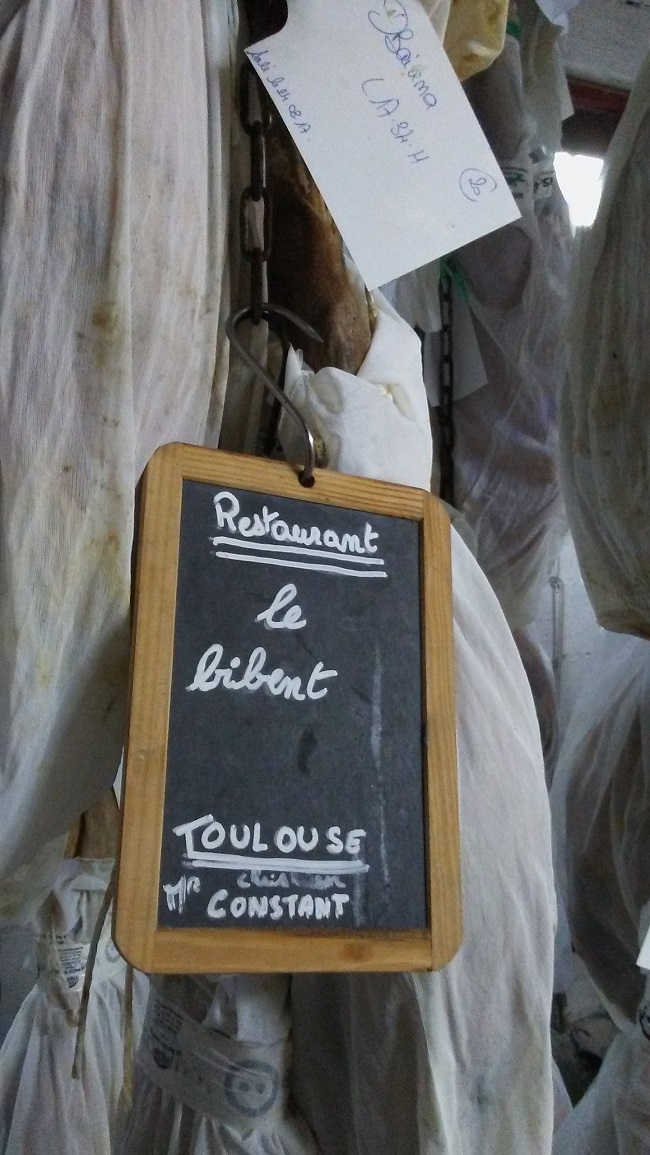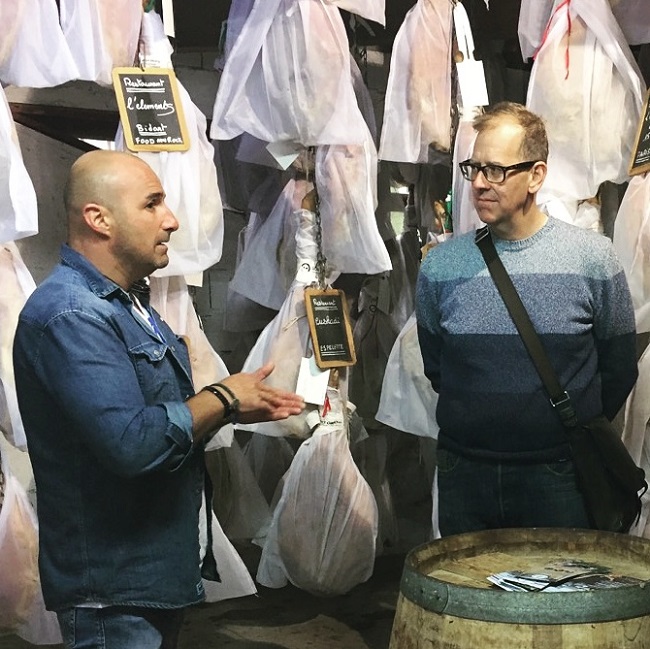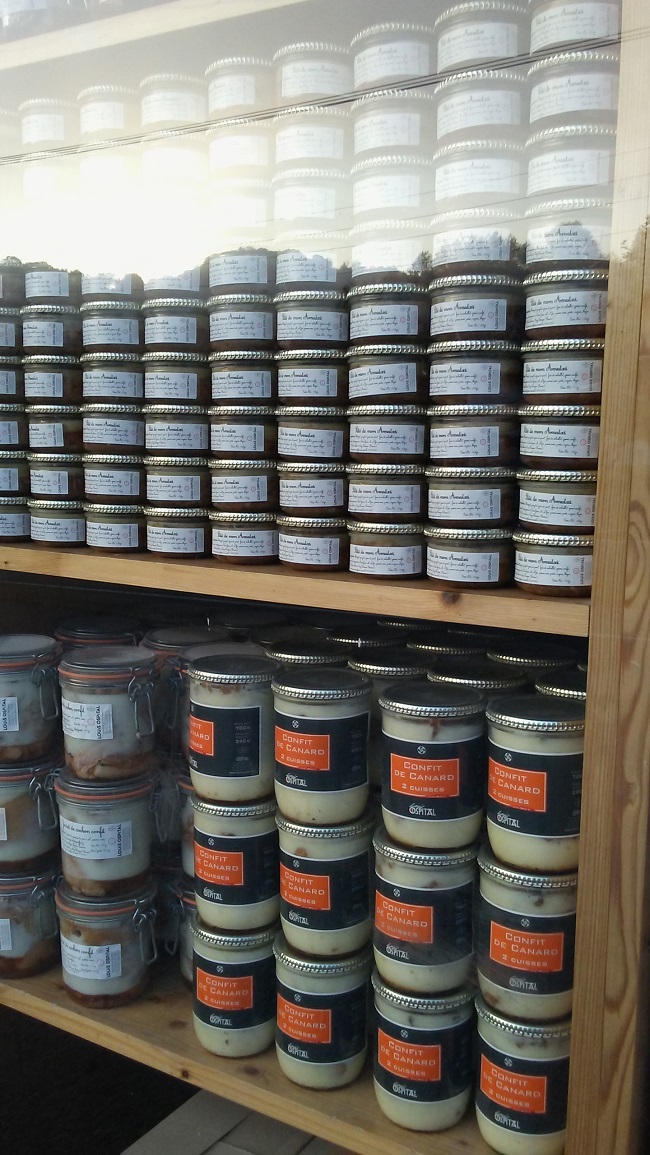
En route with friends from Orthez to Spain, stopped for a morning visit to Charcuterie Louis Ospital, where we were welcomed by owner/operator Eric Ospital. As mentioned in a previous post, Maison Ospital has grown from a tiny storefront selling house-made charcutere (the tiny original store still exists by the way) into perhaps the most famous ham-maker in France. The hams of Maison Ospital are featured in some of the best restaurants in France and around the world, with the notable exception of the good old USA, where tough FDA importation laws create too many barriers.

The unique element of the Ospital story is that their success in not about growing in size into an industry giant but instead about maintaining strict quality standards. Eric’s father Louis was among the tiny group of Basque artisans who, in the 1990s, redefined the standards of excellence in making jambon de Bayonne, in the process developing a new appellation of quality, Jambon Ibaiama. Every Ibaiama ham is made in accordance with a very strict set of standards, from traditional hog breeds, born raised and slaughtered in the Pays Basque, with no GM feed, no antibiotics and no growth hormones and raised by farmers who are paid a fair price.
However it was Eric who first brought the quality of his families hams to the attention of a wider audience during the time that he lived in Paris. He met chef Yves Camdeborde who featured Ospital hams in his ground breaking nouveau bistrot Le Regalade. Since that time, the reputation of both Ospital hams and Eric’s expertise in his field has continued to grow. To the point where now Eric is asked to co-author cookbooks with top chefs.
In person, Eric is personable, very Basque and passionate about his craft. He talked non-stop for over an hour about the history, logic and technique of what he does, before offering a tasting accompanied by a bottle of Lapierre Beaujolais.

Today, Maison Ospital still only buys 10 hogs a week, which yields 20 hams (plus a certain amount of fresh pork sold direct to restaurants and a myriad of other porky products including sausages, pâtes and rillettes), not nearly enough to meet demand. The result is that every ham they make is sold before it is hung in their aging room, where it will stay for 20 months before being delivered.